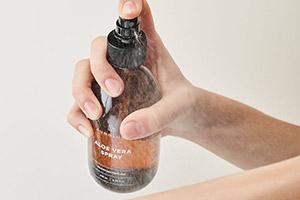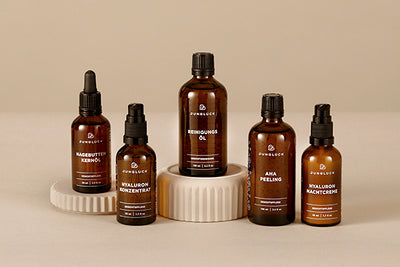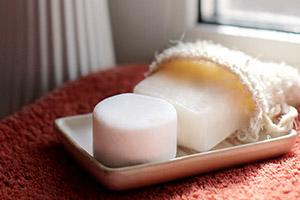AS UNIQUE AS YOURSELF.
Did you know that many people don't know their skin type? Most even think they have a completely different one. This doesn't come as a surprise because the types and conditions of our skin are as individual as each of us. To keep things simple, we've focused on the four main skin types to give you a better insight into your skin.
Would you like to know more about your skin type? Have a look at the information and graphics below, or take the test to help you determine your skin type!
AS UNIQUE AS YOURSELF.
Did you know that many people don't know their skin type? Most even think they have a completely different one. This doesn't come as a surprise because the types and conditions of our skin are as individual as each of us. To keep things simple, we've focused on the four main skin types to give you a better insight into your skin.
Would you like to know more about your skin type? Have a look at the information and graphics below, or take the test to help you determine your skin type!
DETERMINE YOUR SKIN TYPE
DETERMINE YOUR SKIN TYPE
BALANCED SKIN
Characteristics: balanced, firm, clear, insensitive
Skin texture & pores: even, fine, smooth
Teint: even, harmonious, fresh
More info on balanced skinOILY SKIN
Characteristics: shiny film on the entire face, prone to acne
Skin texture & pores: larger, clogged pores, prone to blackheads, pustules and pimples
Teint: shiny, uneven, reddened areas due to impurities
More info on oily skinDRY SKIN
Characteristics: Sometimes cracked, flaky patches, sensitive, porcelain-like skin
Skin texture & pores: fine pores, hardly any blackheads, rough, cracked, scaly
Teint: dull, sallow
More info on dry skinCOMBINATION SKIN
Characteristics: Shiny T-zone, side areas normal to dry
Skin texture & pores: larger pores, blackheads and occasional pimples, dry, sometimes flaky areas around cheeks and eyes
Teint: unbalanced, redness in the T-zone, sallow cheeks
More info on Combination skinWHEN YOU UNDERSTAND YOUR SKIN, YOU UNDERSTAND WHAT YOUR SKIN NEEDS.
In order to know exactly what your skin needs, it is important that you understand how your skin is built and what functions it performs. This way you know what is actually best for you and your skin – and also what is not good at all.
WHEN YOU UNDERSTAND YOUR SKIN, YOU UNDERSTAND WHAT YOUR SKIN NEEDS.
In order to know exactly what your skin needs, it is important that you understand how your skin is built and what functions it performs. This way you know what is actually best for you and your skin – and also what is not good at all.
HOW IS THE SKIN STRUCTURED?
Your skin consists of three main layers and many sub-layers. These include the epidermis, the dermis and the subcutis. They are all closely interconnected and work together to take care of everything your largest organ can do.
For a better understanding, we’ve put together the individual layers simplified in a cross-section of the skin:

1. EPIDERMIS
Epidermis: A protective, waterproof covering that takes care of your skin's renewal, protects you from UV rays and plays an important role in your immune defence. The epidermis is made up of pigments and proteins.
2. DERMIS
Consists of blood vessels, sebaceous glands, hair follicles and nerves. It contains supportive connective tissue made of the proteins collagen and elastin and provides flexibility and durability.
3. SUBKUTIS
Subcutis: Loose connective tissue layer also known as subcutaneous fat. This layer looks different depending on diet and exercise. The subcutis stores energy insulates against the cold and protects you from mechanical influences such as pressure or friction.
4. SEBACEOUS GLANDS AND SEBUM
Also called sebum: Sebum is made up of squalanes, triclycerides, waxes and fatty acids. It prevents our skin from drying out and keeps germs at bay. Most of us tend to either overproduce it (seborrhoea) or underproduce it (sebostasis).
5. SWEAT GLANDS AND SWEAT
Your body has about 2 million sweat glands. Sweat is 99% water and 1% a mix of ions, lactic, amino and fatty acids, ammonia, urea and a few other substances. It mainly takes care of regulating your body temperature.
6. HYDROLIPID FILM AND PROTECTIVE ACID MANTLE
A complicated mixture of sweat, sebum, secretions from the scent glands, fats from the epidermis and cleavage products from the cornification process. The hydrolipidic film makes your skin more resistant to chemicals and water and keeps it moisturised. Environment, age and lifestyle all play a role in the composition of the hydrolipidic film and therefore affect the health of your skin.

HOW DOES THE SKIN WORK?
The skin is your largest organ. It protects you from UV rays and external influences, you feel through it, it warms you when you are too cold and it cools you when you are too hot.
All in all, your skin has many important functions, and to keep them intact, it's so important that you take good care of it.
WHAT AFFECTS YOUR SKIN?
When it comes to the health of your skin, choosing the right care plays a vital role. A radiant glow and balanced skin tone can’t be achieved with a single cream.
In order to provide each layer with the necessary nutrients, a mix of coordinated components has to be found, customized for your skin. Some factors of that mix you can influence, some, you cannot, or barely influence, unfortunately.





